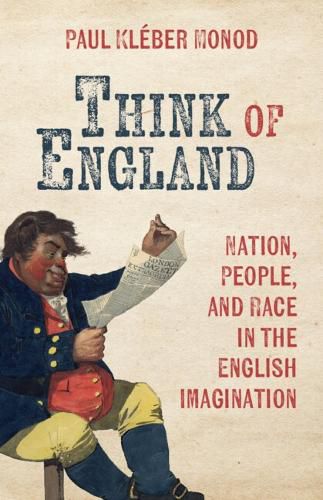Readings Newsletter
Become a Readings Member to make your shopping experience even easier.
Sign in or sign up for free!
You’re not far away from qualifying for FREE standard shipping within Australia
You’ve qualified for FREE standard shipping within Australia
The cart is loading…






What is the basis of English national identity? How has this changed over time, and what is its future? Tracing the history of English identity over more than 2,000 years, Think of England explores how being English has been understood as belonging to a nation, a people, or a race. Paul Kleber Monod examines the ancient and medieval inventions of a British and ethnic Anglo-Saxon identity, before documenting the violent creation of an English ethnic state within Britain, and the later extension of that imperial power into the wider world. Monod analyses the persistence of a specifically English language of cultural identity after 1707 and the revival of English racial identity during the eighteenth and nineteenth centuries, highlighting the crucial role of imperial expansion and the recurring myth of "little England" pitted against larger enemies. Turning to the revival of English identity in the twenty-first century, this study raises probing questions about the resurgence and future of a divisive concept.
$9.00 standard shipping within Australia
FREE standard shipping within Australia for orders over $100.00
Express & International shipping calculated at checkout
What is the basis of English national identity? How has this changed over time, and what is its future? Tracing the history of English identity over more than 2,000 years, Think of England explores how being English has been understood as belonging to a nation, a people, or a race. Paul Kleber Monod examines the ancient and medieval inventions of a British and ethnic Anglo-Saxon identity, before documenting the violent creation of an English ethnic state within Britain, and the later extension of that imperial power into the wider world. Monod analyses the persistence of a specifically English language of cultural identity after 1707 and the revival of English racial identity during the eighteenth and nineteenth centuries, highlighting the crucial role of imperial expansion and the recurring myth of "little England" pitted against larger enemies. Turning to the revival of English identity in the twenty-first century, this study raises probing questions about the resurgence and future of a divisive concept.